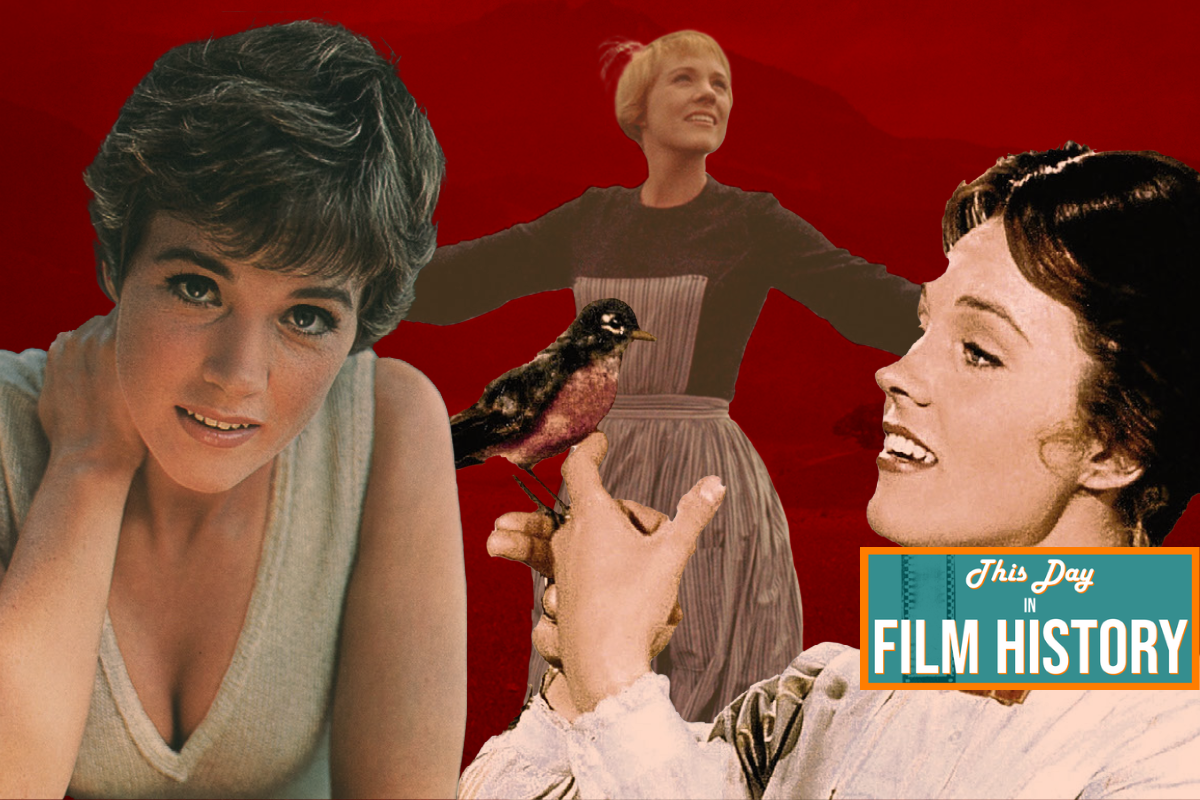
Dame Julie Andrews is, truly, a bonafide legend in the world of cinema, and is without a doubt in the conversation of one of the greatest entertainers to ever grace Hollywood, And she’s done it all in a career that’s spanned over seven decades, enchanting audiences with her clear and trained soprano voice, and an onscreen presence that is equal parts charming and commanding. Whether it be as a nanny, literal royalty, or the voice of a sea monster, literally everyone knows her from some Follow along with me as This Day in Film History puts our October spotlight on Julie Andrews.
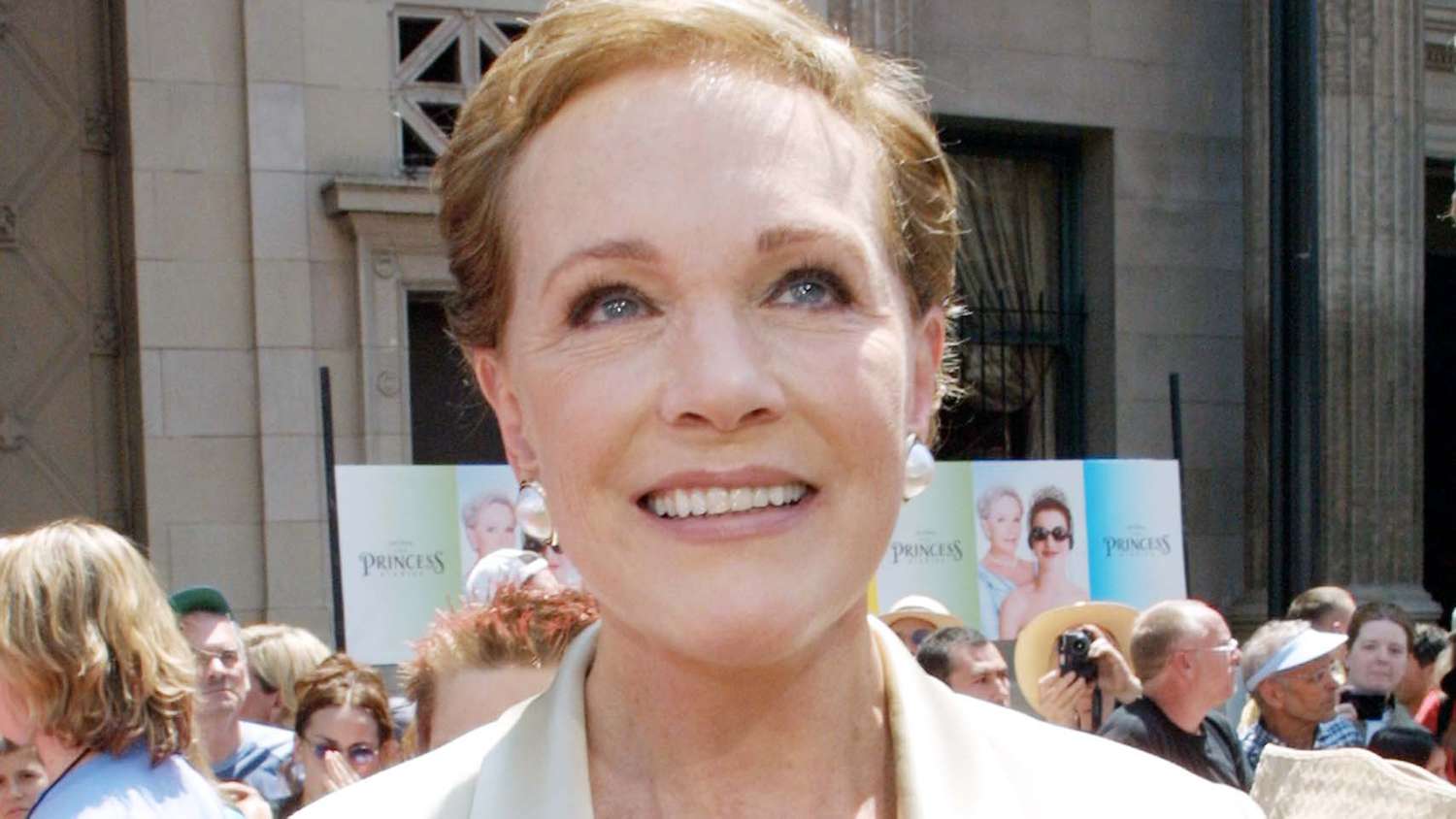
The Early Days
Andrews was born as Julie Elizabeth Wells on October 1st, 1935, in Walton-on-Thames, Surrey, England, to parents Barbara and Edward “Ted” Wells. Her parents divorced shortly after World War II had broken out, and each subsequently remarried. She has four siblings: Johnny (her whole brother,) Donald and Chris (her half brothers,) and Celia (her half-sister.) Andrews had lived with her father and brother after the divorce until she was sent to live with her mother and step-father when her father believed they would be more suited to help when it came to providing training to his daughter, as they were stage actors. Unfortunately, her step-father was a violent drunk, and on two separate occasions tried to get into bed with Andrews while intoxicated. Still, this home was where her first steps into acting would be taken. Her step-father had been a sponsor for lessons from Arts Educational Schools, London (Then known as the Cone-Ripman School) and then from Madame Lilian Stiles-Allen. Andrews spoke very fondly of Stiles-Allen, even considering her a “Third Mother.” And, the feeling was mutual, as Stiles-Allen also gave plenty of praise to her pupil for her incredible range.
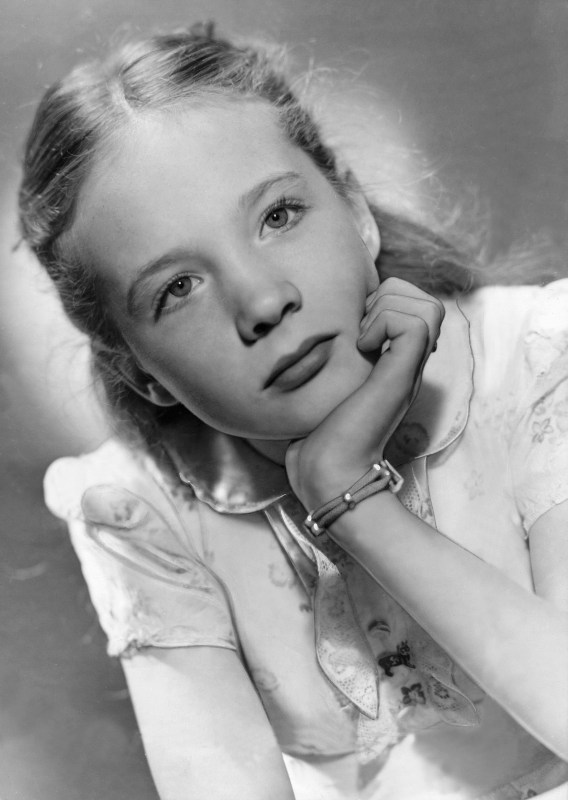
Andrews would begin performing on stage with her parents in 1945. Things would pick up when she was introduced to Val Parnell, a managing director with Moss Empires, leading to more stage performances and eventually even lead to a performance at the Royal Variety Performance, an annually televised charity with members of the British Royal Family in attendance, in 1948. She became the youngest solo performer in the event’s history, singing to King George VI and the future Queen Elizabeth. Later, when her parents moved to television and radio, she’d follow, singing for “Up the Pole,” and being a cast member in “Educating Archie.” She did, however, continue to do stage work as well.
Her debut on Broadway would come on September 30th, 1954, in “The Boy Friend.” She was considered to be the stand-out, and this overall would prove to be a big hit and breakthrough for her career. She later signed on to the TV Film “High Tor,” appearing with Bing Crosby. Later she would audition for, and receive, the role of Eliza Doolittle in “My Fair Lady,” and would go on to call the process of rehearsing the role as the best acting lesson she had ever received. The show opened at the Mark Hellinger Theater, and she would enjoy a two year run as the character. Richard Rodgers, who initially pushed her to audition for the role, was so impressed with Andrews that he featured her in the Rodgers and Hammerstein televised musical “Cinderella,” which aired in March of 1957 and earned her an Emmy nomination. Later that year, Andrews released “The Lass with the Delicate Air,” her debut solo album.

Breakthrough
Julie Andrews’ live action film debut, of course, came from Walt Disney’s “Mary Poppins.” She landed the role after losing the lead role of the film adaptation of “My Fair Lady” to Audrey Hepburn. Hepburn was an established name, Andrews was not, but Walt Disney offered her the lead after watching her perform in “Camelot,” and the rest was history. Andrews began work on the Disney flick in 1963. Originally, she had declined the offer to star due to her pregnancy, but Disney had been adamant in keeping her and even said they’d wait for her. “Mary Poppins” was a smash hit critically and commercially, with significant praise going to Andrews’ performance. She even snagged a Golden Globe Award and one of the film’s five Oscars (out of thirteen nominations,) becoming the first (of seven) actors to win an Academy Award for their film debut.
Later, Andrews would go on to star in “The Americanization of Emily,” with James Garner, earning her a BAFTA nomination, and “The Sound of Music,” earning her another Oscar and BAFTA nomination, and her second win at the Golden Globes. After being a guest star on “The Andy Williams Show,” she starred in Alfred Hitchcock’s “Torn Curtain” with Paul Newman, and in the highest grossing film of 1966, “Hawaii.”
Julie Andrews would, however, follow up this streak with two of the most expensive flops in the history of Hollywood: “Star!” and “Darling Lili.” But, she did still earn Golden Globe nominations for both movies, continuing to prove that, without a shadow of a doubt, she was a star that was reliable to turn in her absolute best, even when audiences wouldn’t turn up.

Move to Television
From the late sixties to the mid-seventies, she’d spend some time on television. This tenure included the NBC special “An Evening with Julie Andrews and Harry Belafonte,” the CBS special “Julie and Carol at Lincoln Center,” her own variety show “The Julie Andrews Hour,” a guest spot on “The Muppet Show,” and a CBS special “Julie Andrews: One Step Into Spring.” She also only appeared in two other films in the seventies outside of “Darling Lili:” “The Tamarind Seed” and “10.”
Julie Andrews starred in 1982’s “Victor/Victoria,” a musical directed by her second husband. The movie received acclaim, with her performance in the gender-bending leading role receiving much of the praise. It was for this film that she received her first Golden Globe win and her third Oscar nomination.
The eighties and nineties, much like the seventies, saw a minimal amount of Julie Andrews appearances in cinema, including “S.O.B.” “Victor/Victoria,” “The Man Who Loved Women,” “Duet for One,” and “That’s Life!” in the eighties (racking up two more Golden Globe nominations), and “Our Sons,” “A Fine Romance,” and “One Special Night” in the nineties. The nineties also created more opportunities for her television and on-stage careers. She had a starring role in the ABC TV movie “Our Sons” and the short-lived sitcom “Julie,” and also hosted “Christmas in Washington” for NBC. She had a limited run with “Putting It Together,” at the Manhattan Theatre Club, and starred in the stage adaptation of “Victor/Victoria” in her first Broadway appearance since her run in “Camelot” 35 years earlier. Her performance received the show’s only Tony nomination, which she declined, as she felt the entire production was snubbed.
Loss of Singing Voice and Career Revival
In 1997, Andrews quit the show when her voice became hoarse and decided to undergo surgery. Unfortunately, this was a major blow to her career: she didn’t have nodules or cancer, her voice was strained, and the surgery ended up being botched. This resulted in a rasp in her voice, and the loss of her crystal clear singing voice that had made her voice shine above all others on stage and in film musicals. She did keep working during this time, working in a London production of “Dr. Dolittle” on stage and starring in the CBS TV movie “One Special Night.”
She returned to film in 2001 with “The Princess Diaries,” which was the first time she worked with Disney in 37 years, and for the film’s sequel in 2004, she sang on screen for the first time since her botched surgery, dueting the song “Your Crowning Glory” with Raven-Symone. This revival in her film career saw her appear in various movies, such as the narrator in “Enchanted,” Gru’s mother in the “Despicable Me” franchise, Queen Lillian in the “Shrek” series, Lily in the Dwayne Johnson movie “Tooth Fairy,” and believe it or not, as Karathen, the giant sea serpent in “Aquaman.”
Behind the Scenes
Julie Andrews is true royalty. To once again sum up the accomplishments she’s gathered over her active decades is staggering: A total of three Oscar nominations with one win, nine Primetime Emmy nominations with two wins, three Daytime Emmy nominations, three BAFTA nominations with one win, and an honorary award, six Golden Globe nominations with one win, five Grammy nominations with two wins and a Lifetime Achievement Award, and of course, in 2000, she was made a Dame Commander of the Order of the British Empire.
Outside of her achievements, Andrews is also a supporter of various charities, such as Save the Children and the United Nations International Fund for Women.
In her personal life, she is the mother and stepmother of five children, grandmother of nine grandchildren, and great-grandmother of three great-grandchildren. She’s been married twice, first to Tony Walton in 1959 (one child together, divorced in 1967,) and then to director Blake Edward in 1969 (two stepchildren and two adopted children, Edwards passed away in 2010 at the age of 88.)
Julie Andrews is an inspiration, a true icon in cinema, a rock and hero to many, and, of course, seems to be one of the greatest stories of perseverance in the entertainment industry. I don’t even want to think about the day that we lose her, as that will be a dark day indeed. But, even when that day comes, we here at This Day in Film History will continue to sing the praises of this titan of the industry, who turned 86 this month.

Let us know your favorite film or project with Dame Julie Andrews! Be sure to like this page, follow us on Twitter, Instagram, and Facebook, and share this article around to bug all your friends who are sick of hearing you talk about movies so dang much. Also, check out other articles on our page, written by yours truly and some truly remarkable (and surely much more qualified and gifted) authors. But before I let you go, I want to remind you that you are important, and I am so happy that you exist and are here right now. Reading this, sure, but you simply existing is enough of a blessing in this world of ours. Please make sure to be kind to yourself, take breaks, enjoy your time here, and know that you are valuable beyond words, dear reader.


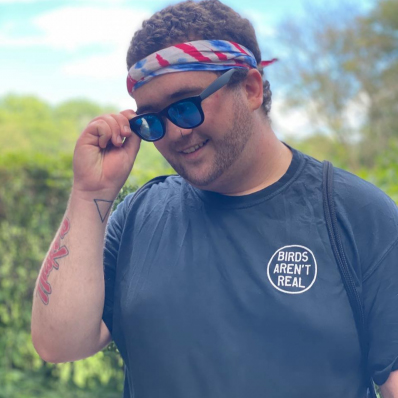
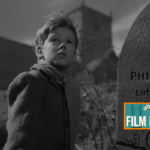
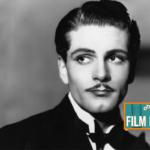
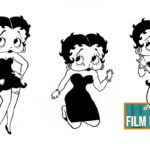
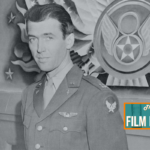

I enjoyed Julie Andrews attributes and talents for singing and for her acting abilities too.
However, for what it is worth I was saddened to learn she can no longer sing as before due to complication of surgery to her throat. I only wish her the best as she continue to provide us with her acting talent and presence.
Angela Carleton
October 12, 2021